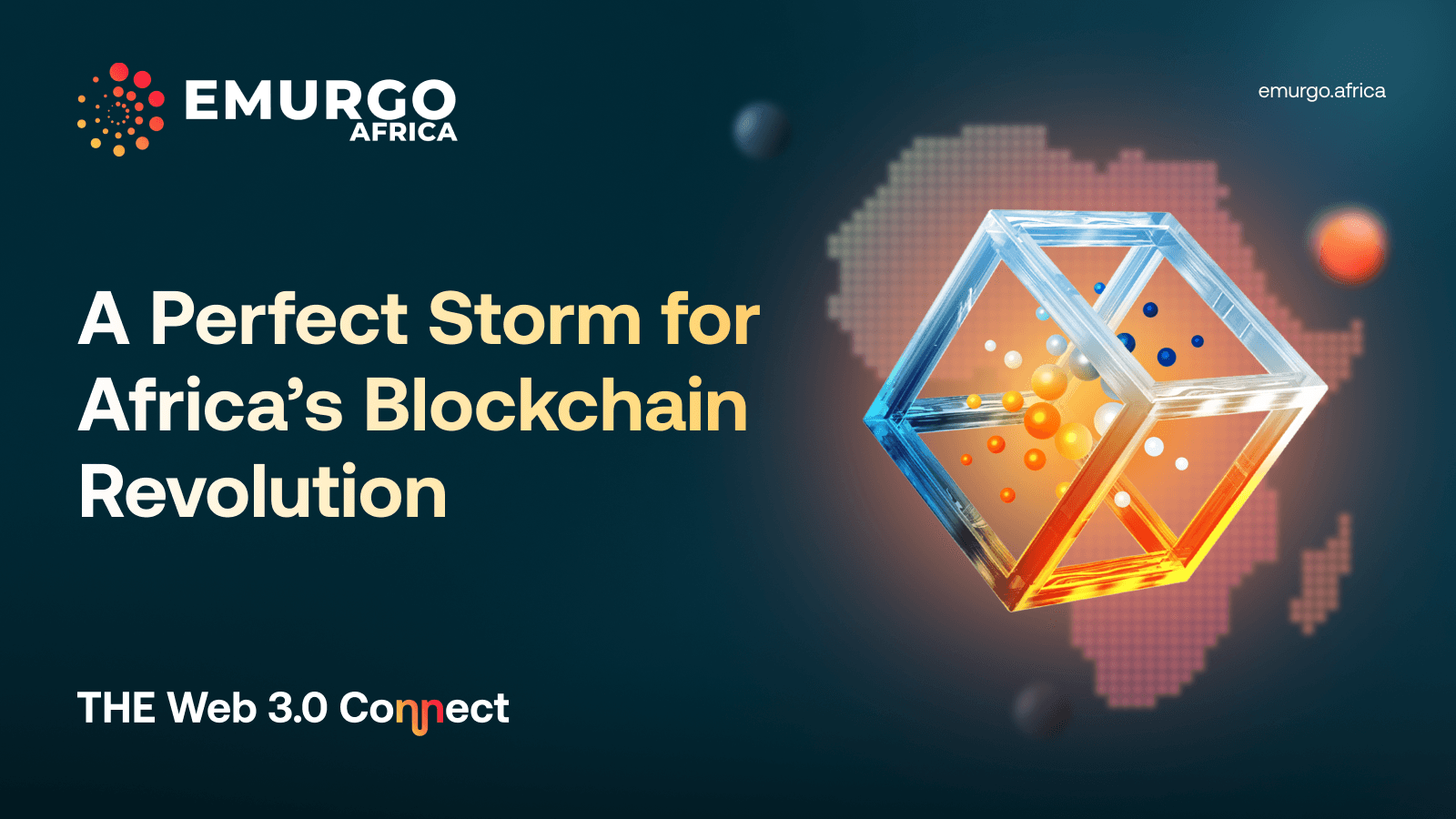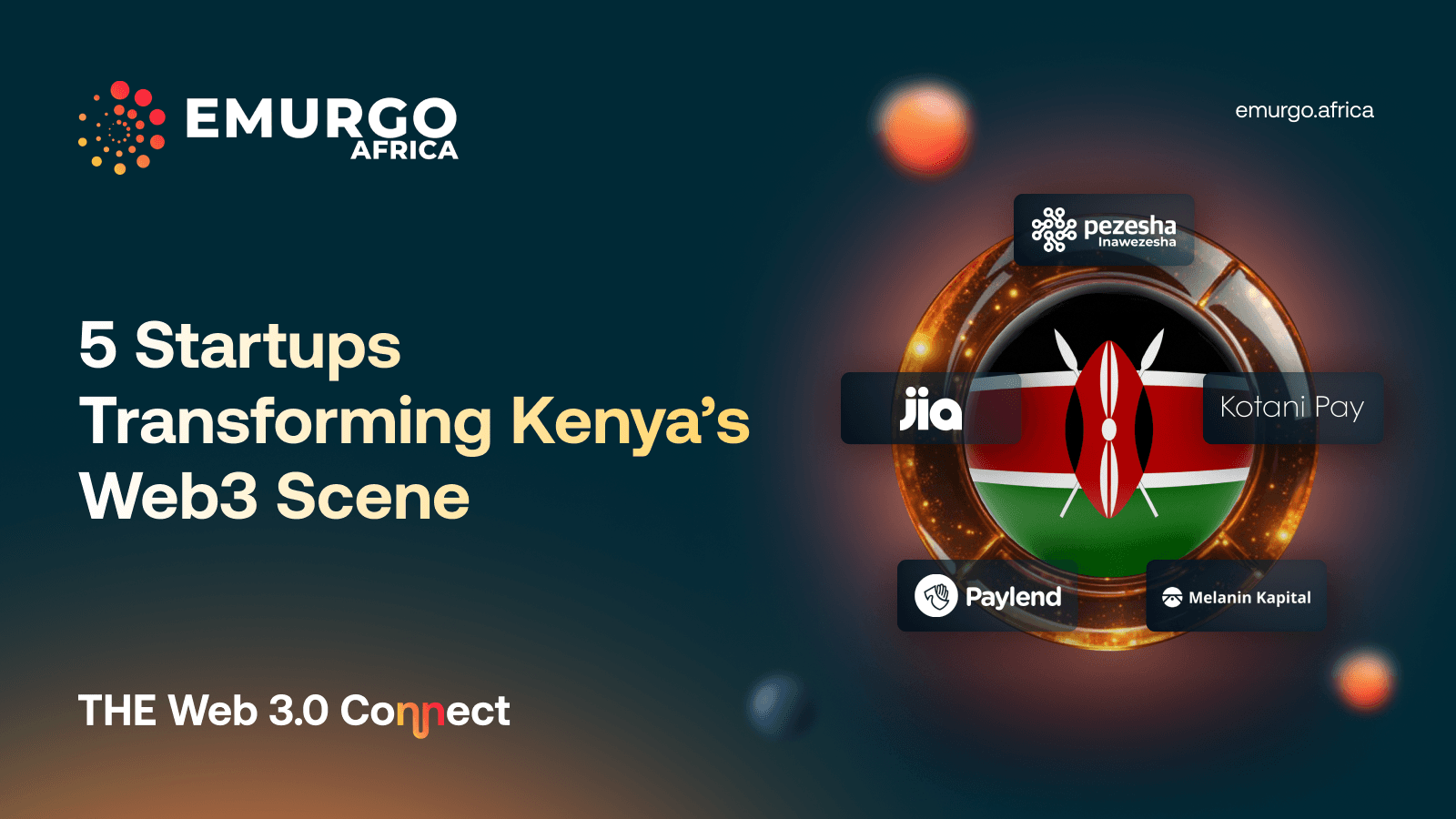By Yosuke Yoshida, Co-CEO of EMURGO Africa
Africa, the world's youngest and fastest-growing continent, is experiencing a surge in blockchain adoption. This burgeoning ecosystem, driven by a confluence of factors, holds immense potential to revolutionize financial inclusion, identity management, and even environmental solutions.
Africa's embrace of blockchain stems from several key challenges and opportunities. A large portion of the population remains unbanked, lacking access to traditional financial services. Blockchain, with its decentralized nature and low barriers to entry, offers an alternative financial system. Mobile money penetration is already high across Africa, creating a familiar digital infrastructure for integrating crypto and blockchain-based solutions.

Africa boasts a young, tech-savvy population eager to explore new technologies. This entrepreneurial spirit fuels innovation in the blockchain space, with startups emerging to address local needs. Governments, recognizing the transformative potential, are exploring the use of blockchain for land registry, identity management, and fostering transparency in governance.
Financial inclusion is a major theme in Africa's blockchain narrative. Decentralized finance (DeFi) offers a glimpse into a future where individuals have greater control over their assets. Cryptocurrencies and stablecoins can facilitate remittances, a crucial source of income for many African families, offering faster and potentially cheaper transactions compared to traditional money transfer services. Startups like Fonbnk, Canza Finance, VALR, Bitmama, and Kotani Pay, supported by EMURGO Africa, are tackling cross-border payments with blockchain-based solutions.
Blockchain also offers secure and verifiable digital identities, a critical need in a continent where traditional identity documents are often unreliable or inaccessible. In Ethiopia, IOG’s blockchain-based digital identity work is helping a large number of students and teachers eliminate fraud in the education sector, according to IOG’s director of African operations John O'Connor.
Money and Climate: The Big Headaches

Africa is the hardest hit continent by climate change despite contributing the least to the problem. Thousands of Africans have perished as a result of severe drought in the Horn of Africa region, flooding in Nigeria, South Africa and Uganda, and devastating tropical storms in Madagascar and Mozambique.
The World Meteorological Organization warns that a temperature rise of 4°C relative to pre-industrial levels could reduce Africa’s GDP by up to 12.12%, while the World Health Organization estimates that climate change will claim the lives of 250,000 more Africans per year between 2030 and 2050.
Africa remains disproportionately affected by climate change catastrophes, and urgently needs financing for climate adaptation and resilience. The Climate Policy Initiative projects that Africa needs $2.8 trillion in climate finance between 2020 and 2030, or $250 billion annually. However, the continent has limited climate finance flows, so by 2030, Africa could have a gap of $200–$400 billion per year.
While carbon credits offer a modest way of climate finance, a multitude of hurdles stand in the way. Complex bureaucratic procedures, lack of transparency, lack of standardized regulations, and difficulties in tracking funds hinder access to crucial resources.
The current climate finance system relies heavily on intermediaries, leading to delays and inefficiencies. This is where blockchain technology and EMURGO Africa offer a glimmer of hope. Blockchain, with its inherent transparency and immutability, can streamline processes. Imagine a system where project proposals are submitted on a tamper-proof ledger, with real-time tracking of funding allocation and utilization. This would not only enhance transparency but also bolster trust among donors and recipients like governments and nonprofits.
EMURGO Africa’s investment in Changeblock, an environmental credit exchange platform that aims to address most of the challenges in climate credit access in Africa, is a testament to its commitment to streamlining verifications for carbon offsets on the continent.
Africa harbors millions of dollars worth of carbon credits, especially in the Congo Basin which absorbs 1.5 billion tons of carbon each year, holding roughly 8% of the world’s forest-based carbon. Roughly 23% of global emissions are now covered by some form of carbon credit pricing, with the carbon credit market reaching a record $851 billion in 2021. But Africa only gets the smallest share of this money.
To bring Africa on par with the US, Europe and China in terms of carbon credit access, Changeblock plans to work with individual countries such as South Africa, Morocco, Kenya, Malawi, Gabon, Nigeria, Egypt and Togo as well as the Africa Carbon Markets Initiative (ACMI) to help grow the market.
Through EMURGO Labs, we offer educational initiatives and community building efforts that are crucial for blockchain adoption in climate finance. Building capacity within African institutions and local communities is essential for ensuring these solutions are implemented effectively and inclusively.




